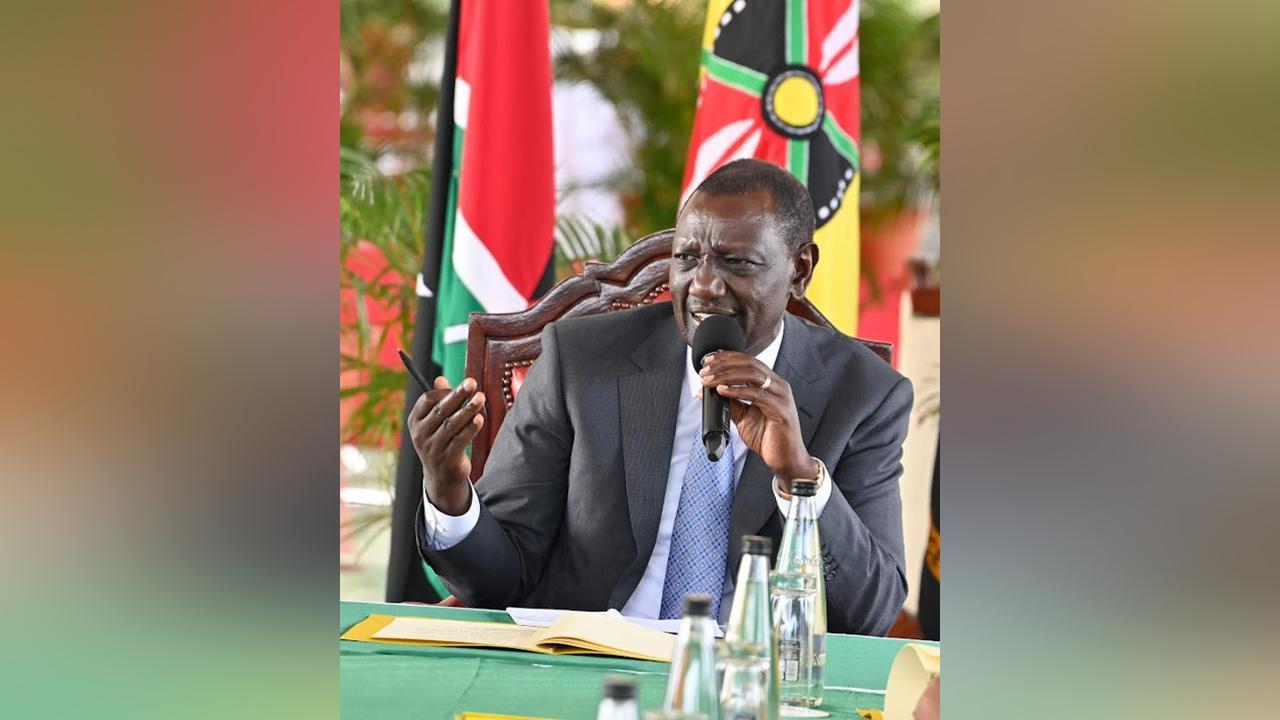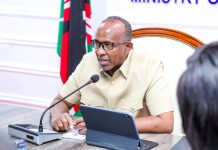Africa-Press – Kenya. Election losers and political actors could soon be locked out of appointments to lucrative parastatals in a proposed law.
A new bill by President William Ruto’s administration, if implemented, would see politicians kicked out of the directorships of parastatals.
The Government Owned Enterprises Bill, 2024, provides that persons who have in the past five years been affiliated to a political party are not qualified for appointment as directors.
“A person is not qualified to be appointed as an independent director of a government-owned enterprise if that person has in the past five years been affiliated with a political party,” the proposed law reads.
The Bill says the board shall consist of a chairperson – who is an independent director and six other persons who are also independent directors.
Others would be one public officer nominated by the National Treasury and a representative of the relevant ministry and the CEO.
“The chairperson shall be elected by the board of directors from among the independent directors,” the proposed law, which Treasury is seeking public views, reads.
Presently, chairpersons are appointed by the President.
Many poll losers have over the years got a lifeline through state appointments to government-owned enterprises.
State corporations have also provided an opportunity for the leaders of the government of the day to reward loyalists and cronies with plum jobs.
The proposed law further locks out politicians from a selection panel it seeks to establish for appointment of boards of directors.
MPs and MCAs are among those expressly barred from any hiring panel.
“A person shall not qualify for appointment as a member of the selection panel if that person is MP, MCA, a member of governing body of a political party,” the proposal reads.
“A person shall cease to be a member of the selection panel… if the person becomes a holder of a political office whether or not in a legislative role.”
A number of political activists and poll losers in the 2022 election have since landed state jobs, mostly in parastatals as members or chairpersons of boards of directors.
Among the latest beneficiaries are former Mumias East MP Ben Washiali, who was recently named the chairperson of the Board of the Tourism Regulatory Authority.
Former Kilifi speaker Jimmy Kahindi was named chairman of the Public Procurement Regulatory Authority Board in the changes that ensued.
Former Kajiado Governor David Ole Nkedianye also landed a state job in President Ruto’s government as chairperson of the Wildlife Research and Training Institute.
Even though he did not actively seek an elective seat, former Sports Cabinet Secretary Rashid Echesa was appointed the chairperson of the Kenya Water Towers Agency Board.
President Ruto also appointed Irungu Nyakera as the chairperson of the Board of Directors of Kenya Medical Supplies Authority.
Nyakera unsuccessfully sought the Muranga governor seat in the last election through Farmers Party, which is a member of the Kenya Kwanza alliance.
Former Meru Governor Kiraitu Murungi was named as the chairperson of the National Oil Corporation of Kenya.
David Mwaure, a former presidential candidate, landed a role in the government as chairperson of the board of trustees of the National Environment Trust Fund.
On April 14 last year, the Presiden appointed former Awendo MP Jared Opiyo to chair the board of directors of South Nyanza Sugar Company Limited.
Former Kisumu Governor Jack Ranguma was also appointed chairman of the SACCO Societies Regulatory Authority.
Ruto’s administration seeks to tighten the noose on the membership of boards in the proposed changes.
Apart from barring politicians, relatives of immediate former board members and employees of a state corporation would be locked out of the boards.
The GOE Bill, 2024, provides that a member of the immediate family of an individual “who is, or has been during the past five years employed by the government-owned enterprise or its related parties” is disqualified.
Any person who has been affiliated with or employed by the auditor or former auditor of a state corporation would also be prohibited from being a member of the board.
The proposed law provides that former employees of a given state corporation or its related parties can only join the board after five years.
Advisers or consultants of the state-owned enterprise would also be barred as long as they remain affiliated to the company.
The government seeks to bar contractors supplying goods and services to state agencies from taking up directorship jobs.
Persons affiliated with any organisation that gets significant funding from the state-owned enterprise would also be disqualified from taking up the posts.
“A person is disqualified as an independent director if that person is employed as an executive of another company where any of the company’s executive serves on that company’s board of directors,” the Bill reads.
It sets a criteria to be considered in the merger of state-owned enterprises as announced by President Ruto administration recently.
Treasury indicated that only 158 of the 288 government businesses would be spared in the proposed merger and reorganisation.
As a guide, entities would be retained only if they are to fill a gap left by the market forces, if they shall operate on commercial principles.
To survive the radical surgery, state entities would be required to have a defined income stream “that substantially supports the associated commercial activities.”
The proposed law also bars the authorities from establishing state-owned enterprises without express approval of the Cabinet.
A stringent criteria provides that such applications would only be approved if the proposed activity cannot be achieved through an existing agency or the private sector.
“A government-owned enterprise shall operate as a commercial entity and shall operate for profit, be self financing, self sustaining and accountable to the public through the National Treasury,” the proposed law reads.
State agencies would also undertake public service obligations – to be funded by the exchequer.
For More News And Analysis About Kenya Follow Africa-Press






